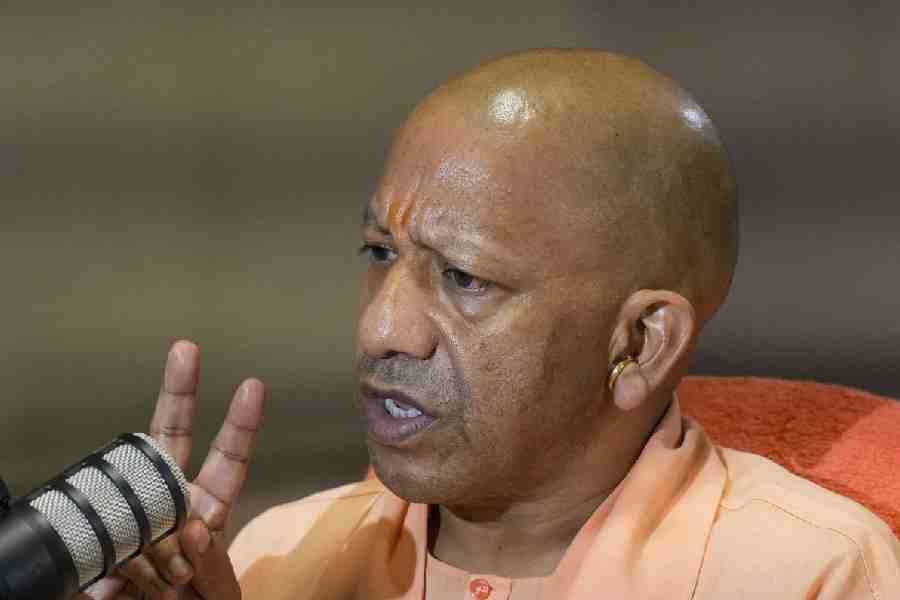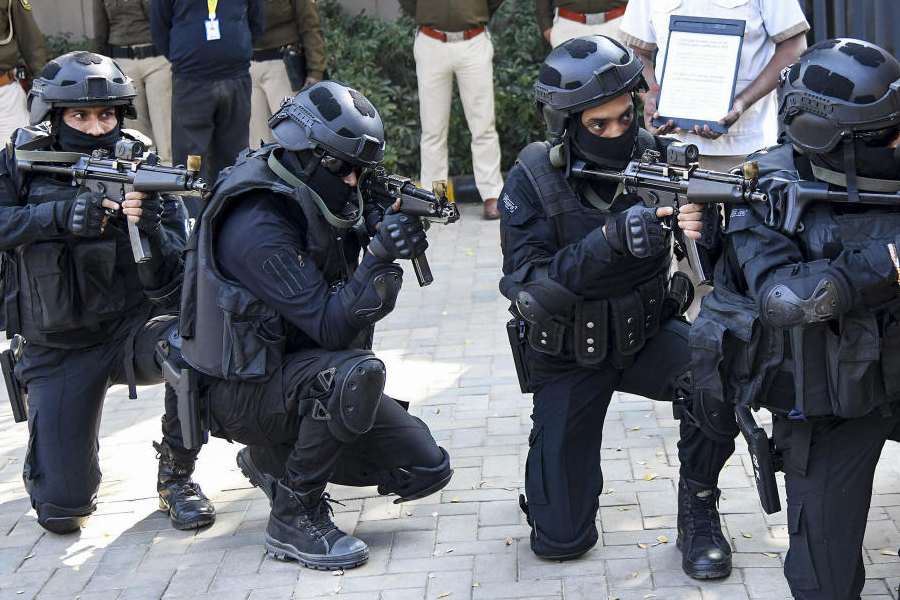The Supreme Court last year stopped the Yogi Adityanath government from forcing shop and dhaba owners along a Shaivite pilgrimage route to reveal their names and, thereby, their religion.
This year, the state is relying on technology to try and achieve the same goal while sidestepping the court’s injunction.
The Uttar Pradesh government’s Food Safety and Drug Administration has asked dhabas and shops on the Kanwar Yatra routes to put up the registered names of their facilities on their boards — along with a special QR code allotted to them.
Ostensibly, this innovative QR code aims at quality control: Customers can use it to give feedback or lodge complaints about the food or the service, uploading pictures as evidence.
However, the QR code also reveals the name of the owner and, therefore, his or
her religion.
“Those who want to know the details about the shopkeepers and dhaba owners can scan the QR code through a digital application of the department and know the identity of the owners,” the department’s order, which it has made public, says.
Speaking off the record, an officer of the department said: “There is no rule to force shopkeepers to mention their names on the shop signboards. The Supreme Court too is against the declaration of personal identities.”
However, he added: “Shops and restaurants have a registered name and number; we are issuing a QR code to each of them that they must print on their boards.”
The official said mobile vans of the department would be deployed along the highways and reach an eatery as soon as any complaint is received.
The month-long Kanwar Yatra, held in Shravan every year, involves pilgrims walking long distances to collect Ganga water and offer it at a Shiva temple. The routes crisscross large parts of Uttar Pradesh and Uttarakhand.
Last year, these two states’ governments had issued an administrative order to all shop and dhaba owners along the routes to put up their names and other details on the shop signboards.
This prompted Opposition allegations that Muslim traders were being identified so that the pilgrims could avoid or harass them. Several Hindutva groups attacked Muslim-owned establishments that had been named after Hindu gods and goddesses to attract Kanwar pilgrims.
Petitioned by some shopkeepers, the Supreme Court stayed the orders while making adverse remarks against them.
Kanwariyas of Haryana and Delhi enter Uttar Pradesh from Ghaziabad and travel to Haridwar via Meerut, Muzaffarnagar and Saharanpur on foot to collect Ganga water. Kanwariyas of Uttar Pradesh too travel to Haridwar via Saharanpur or Muzaffarpur. Some routes pass through other parts of Uttar Pradesh.










